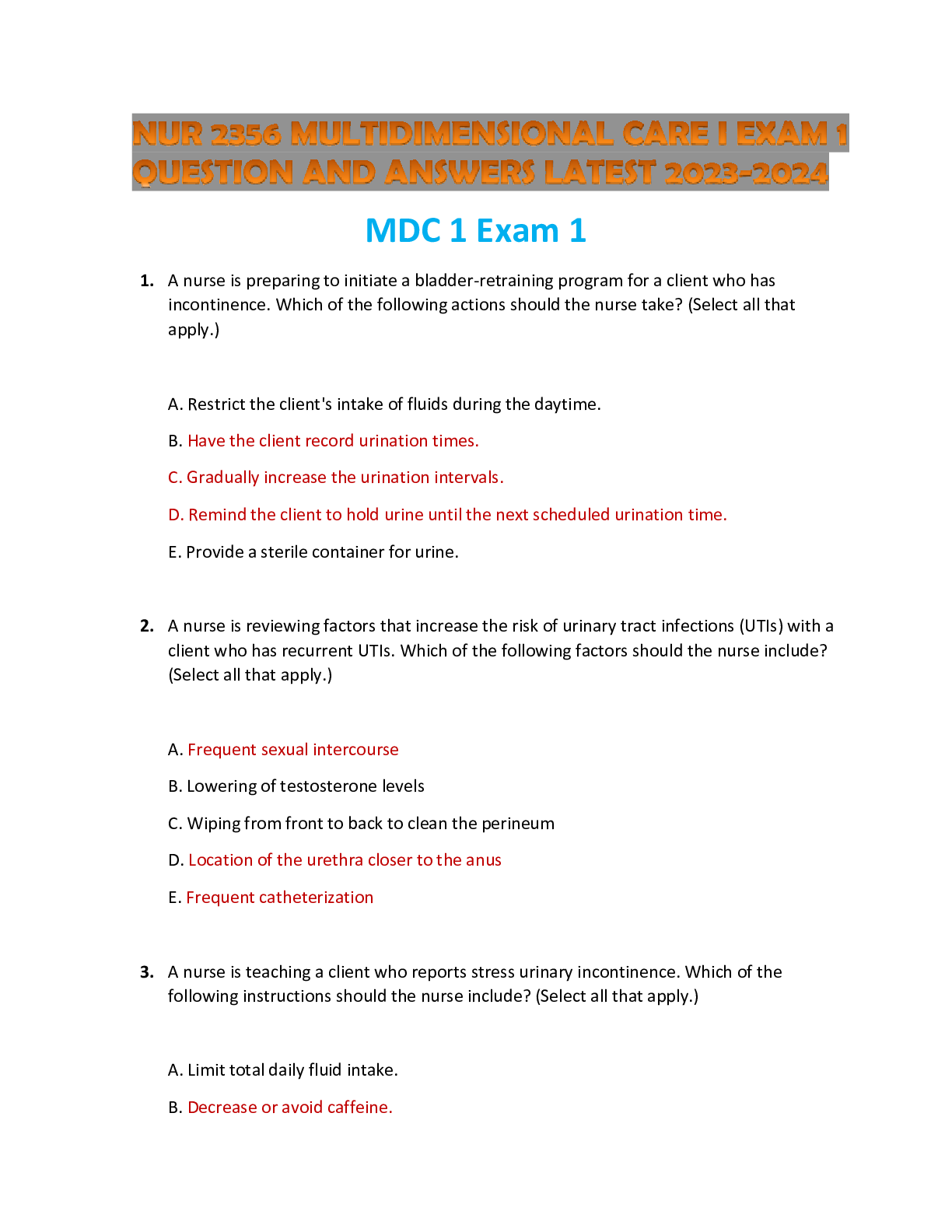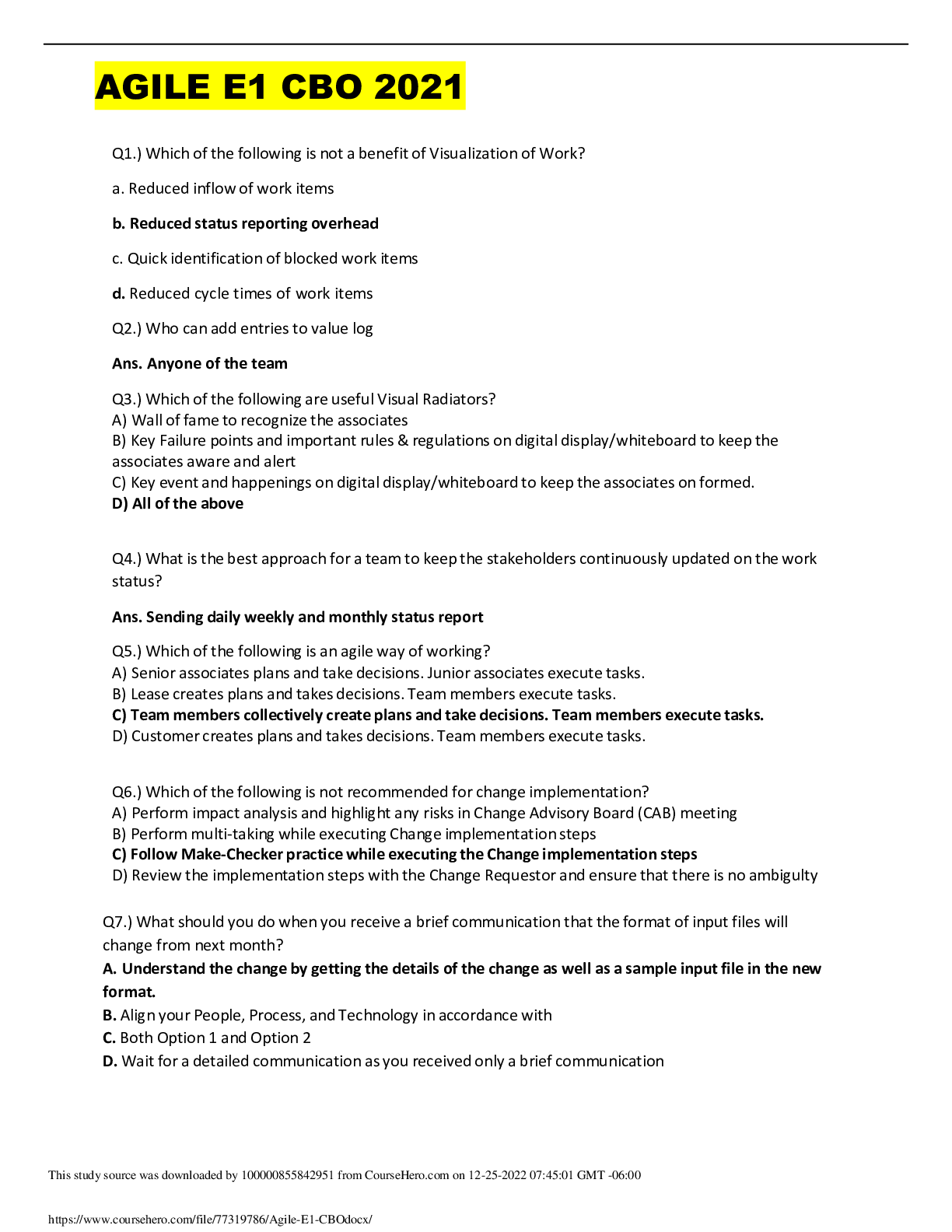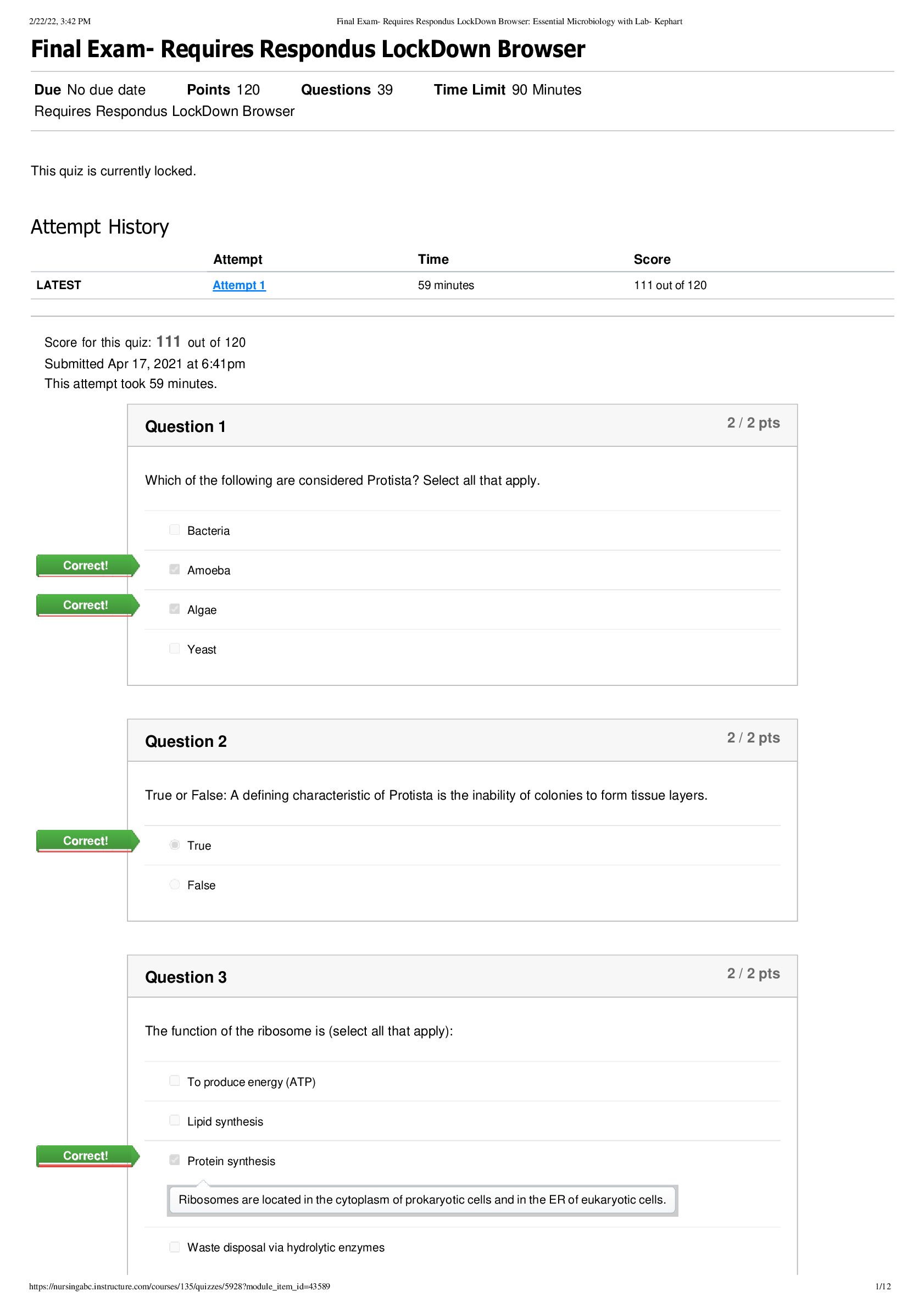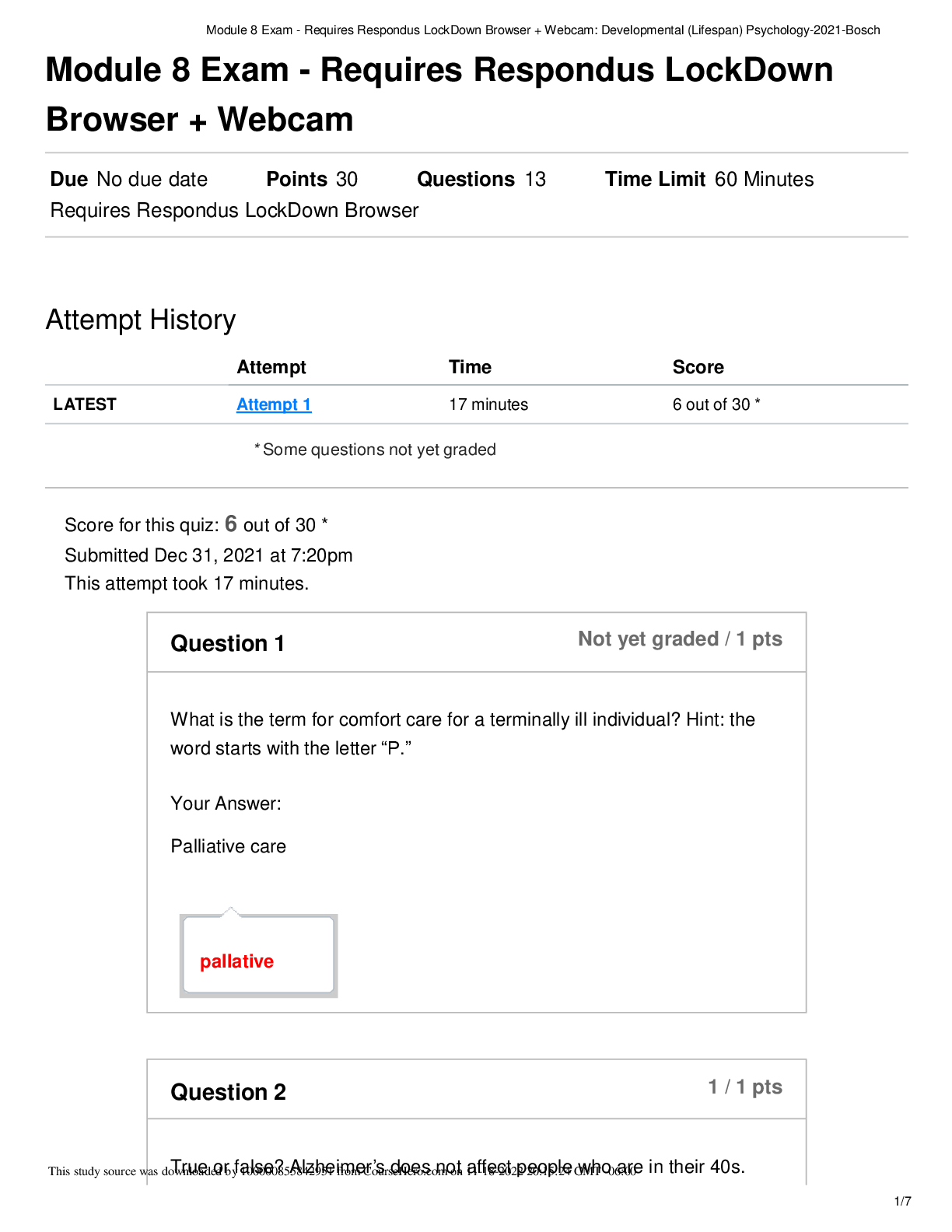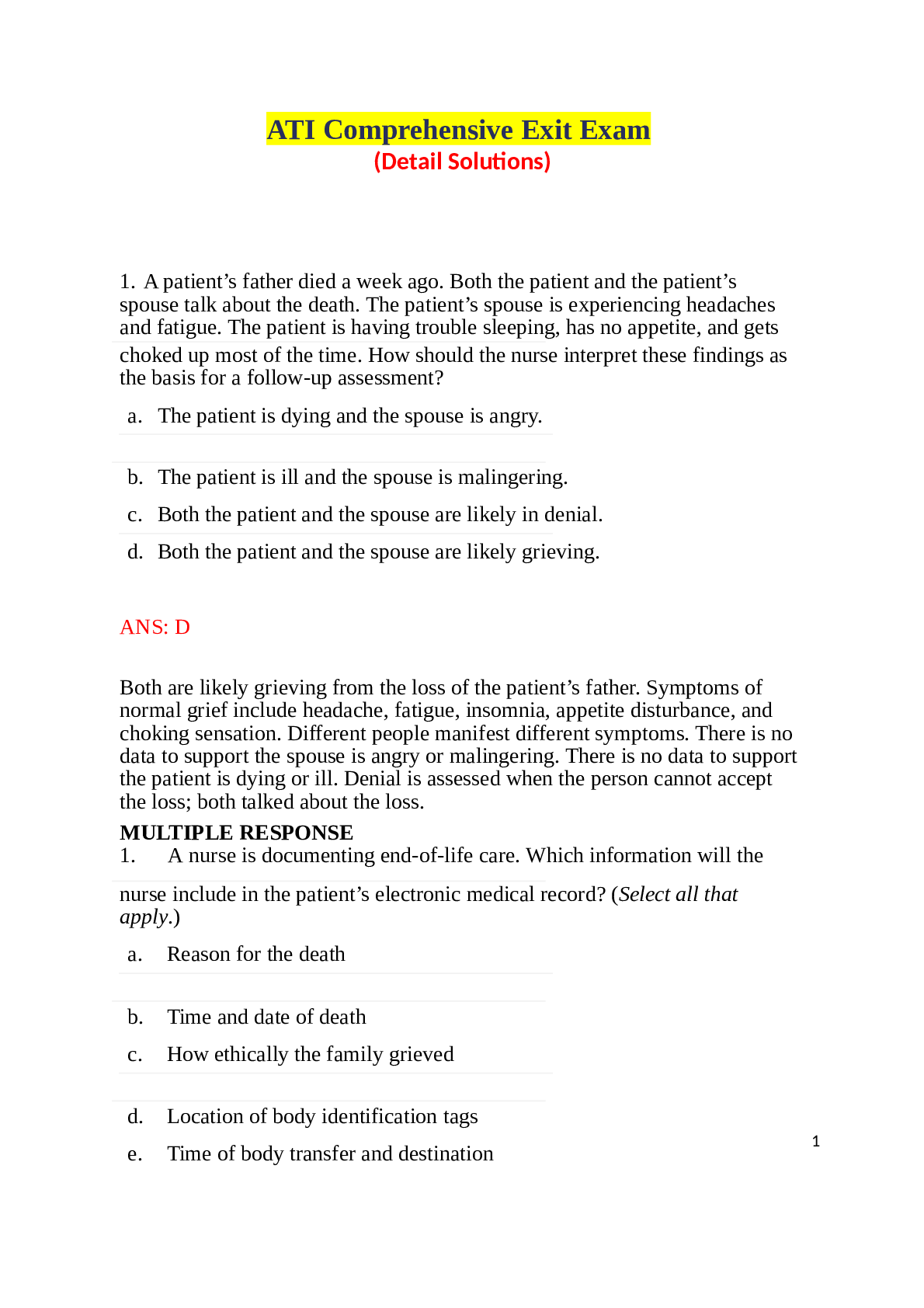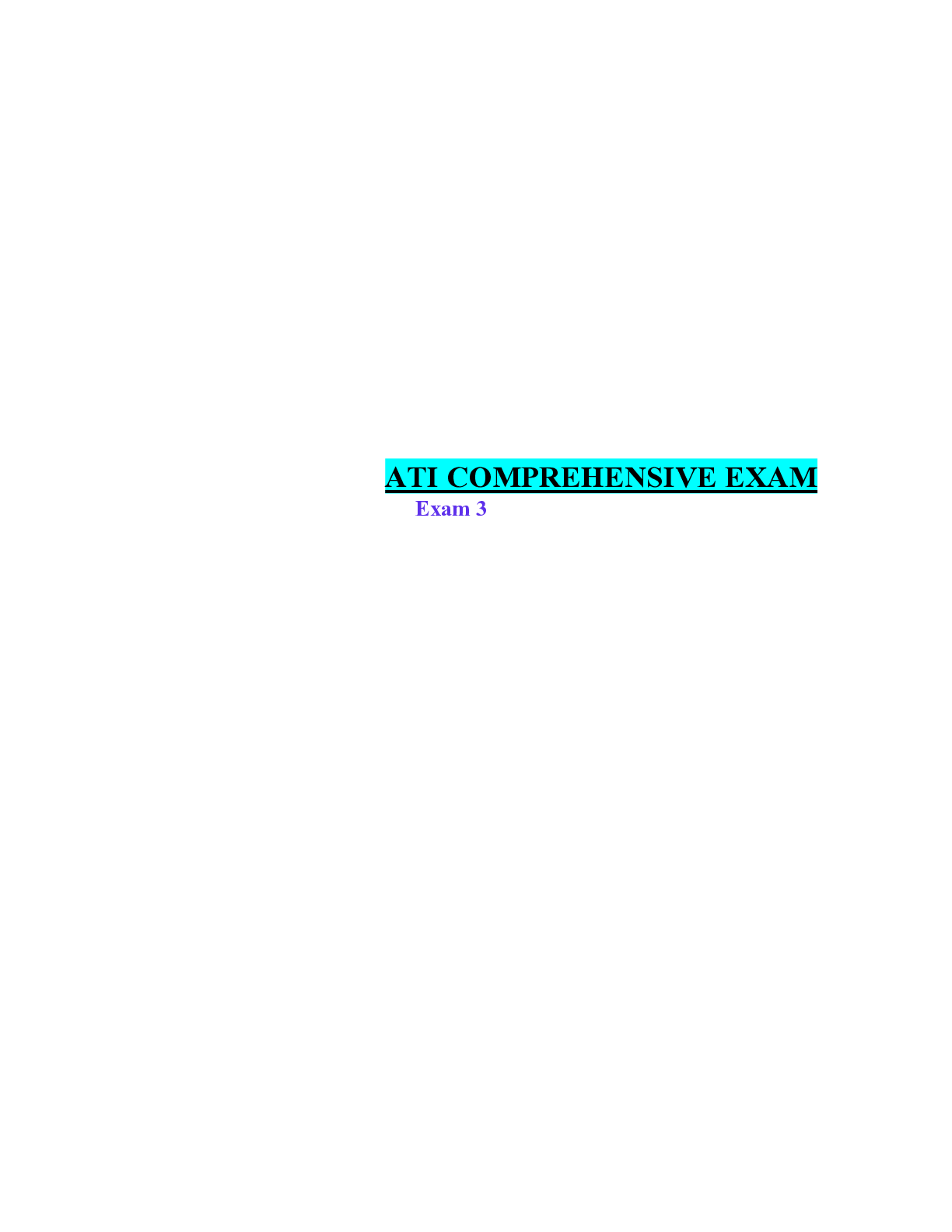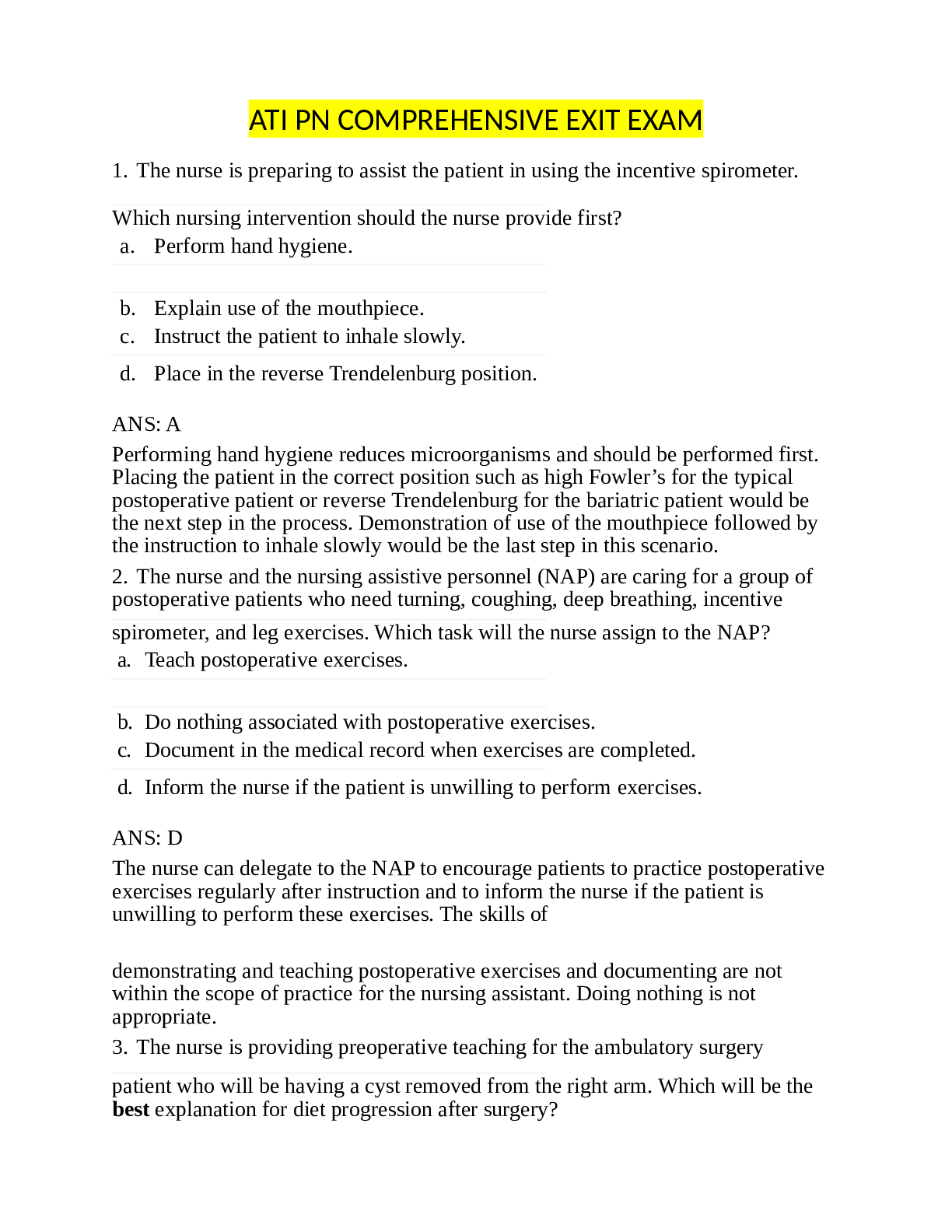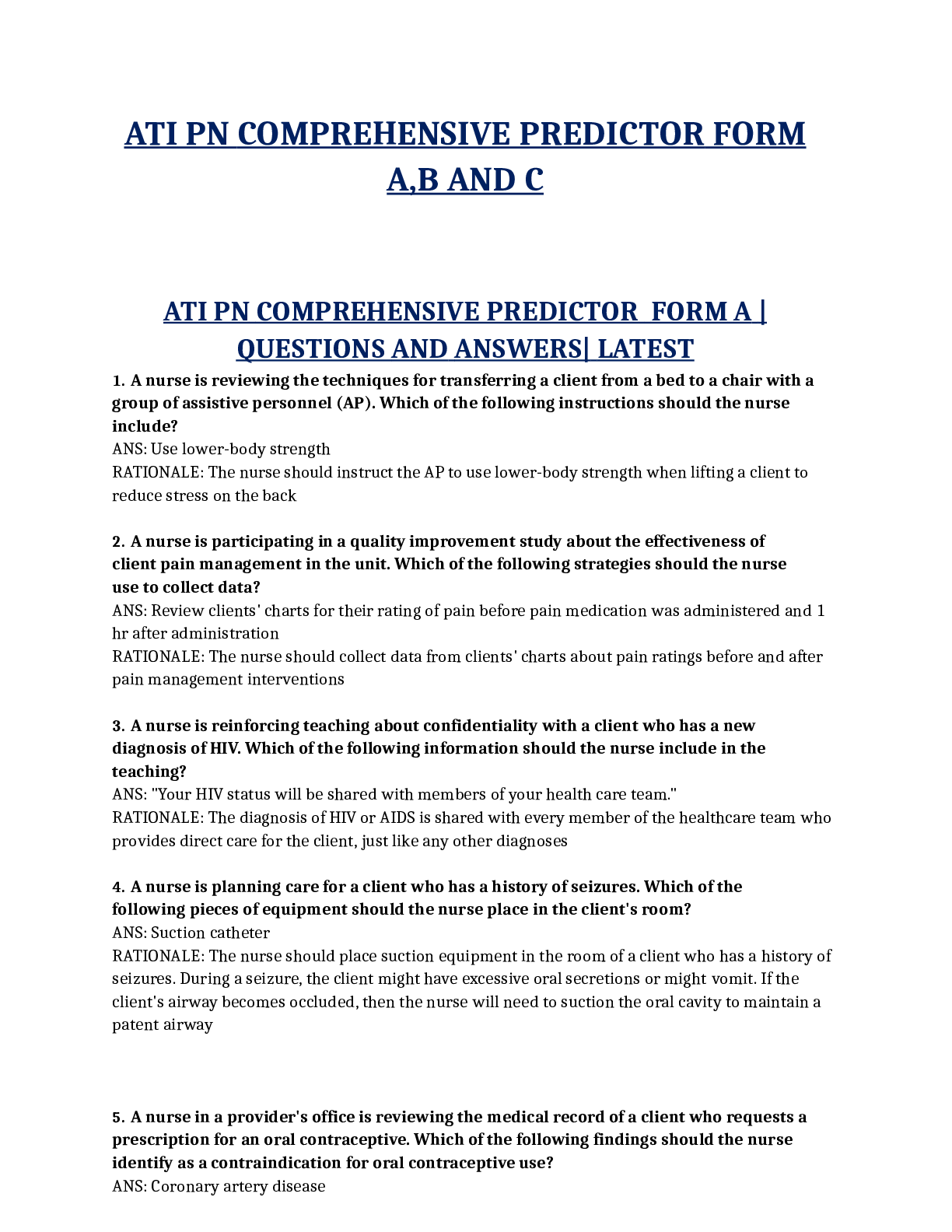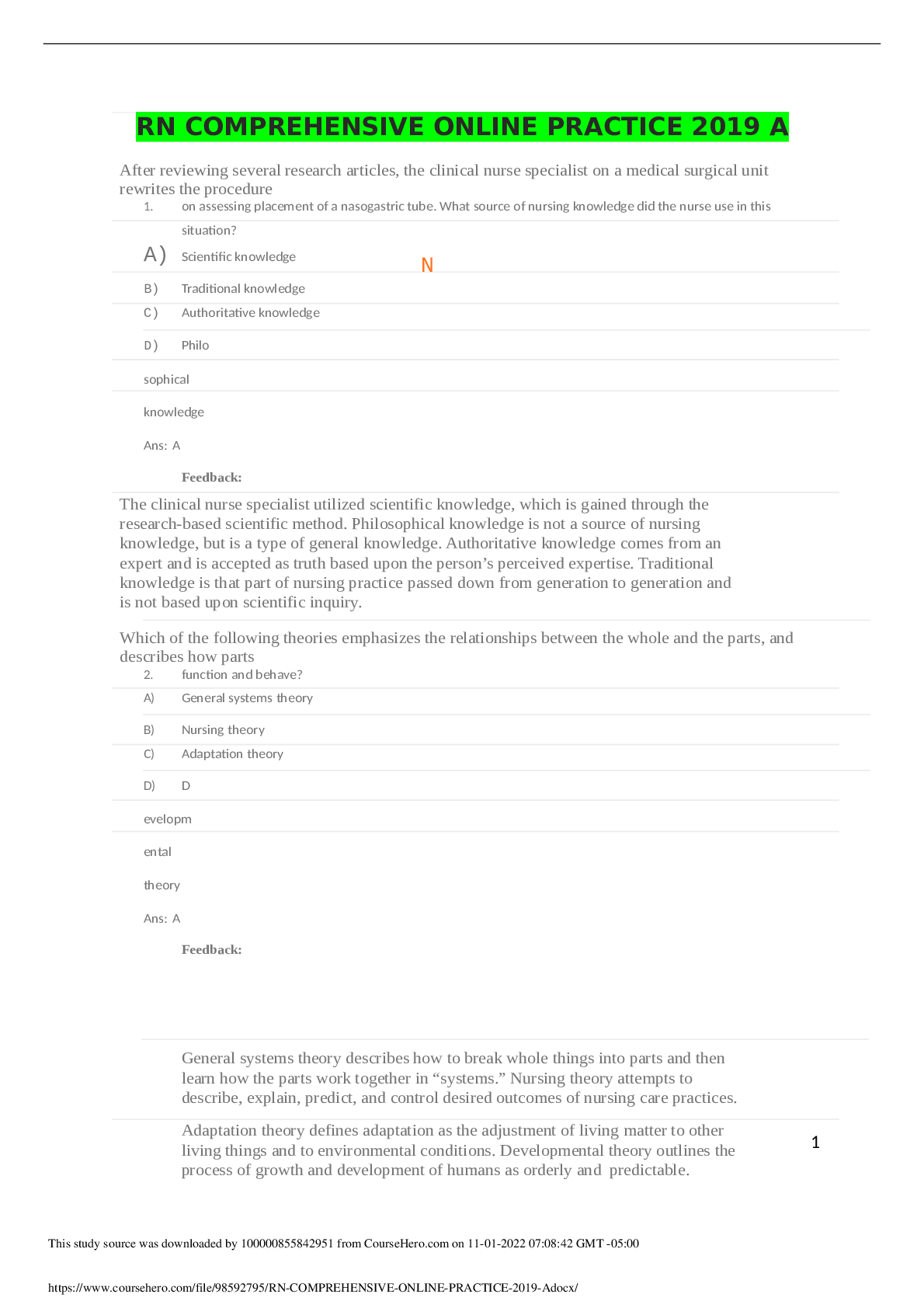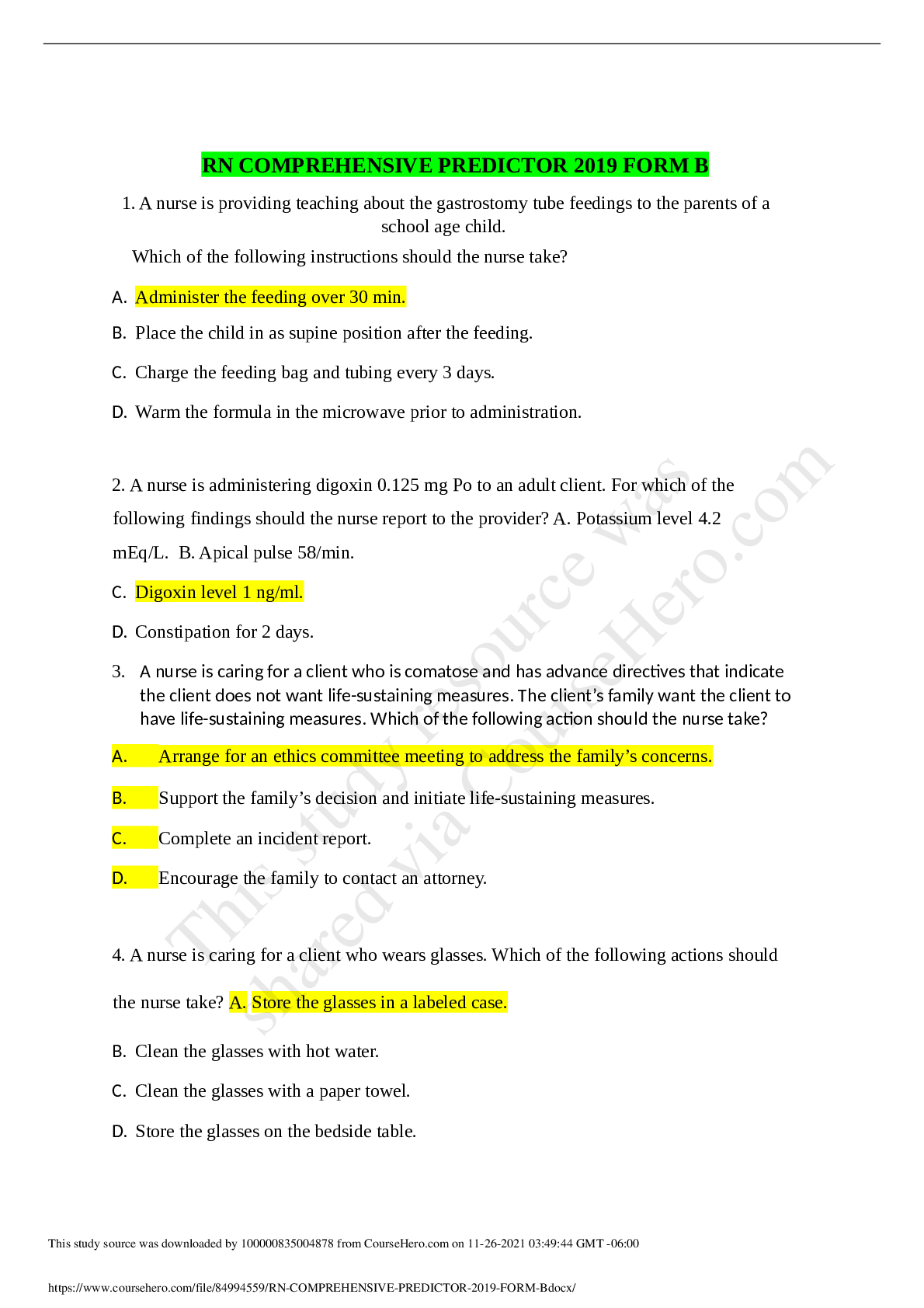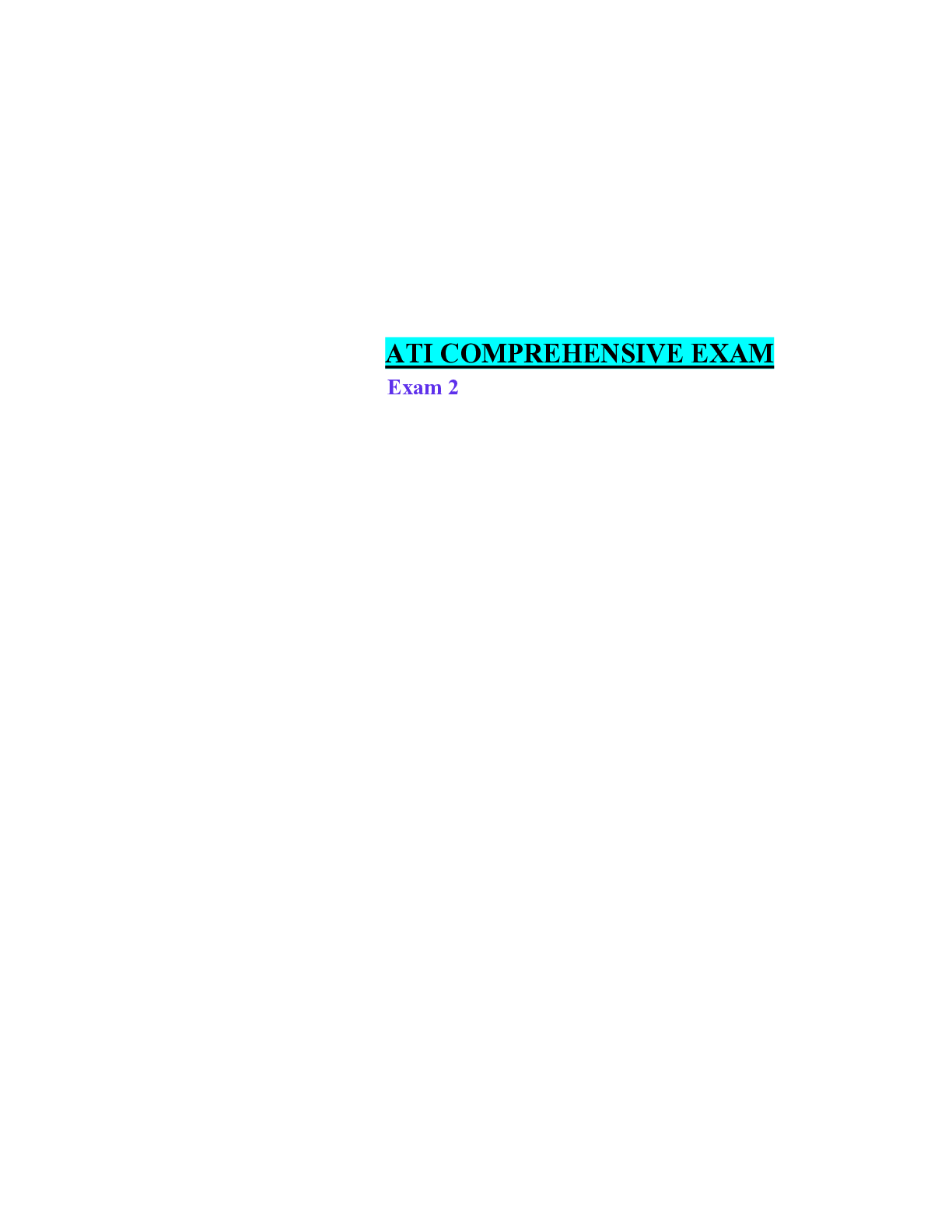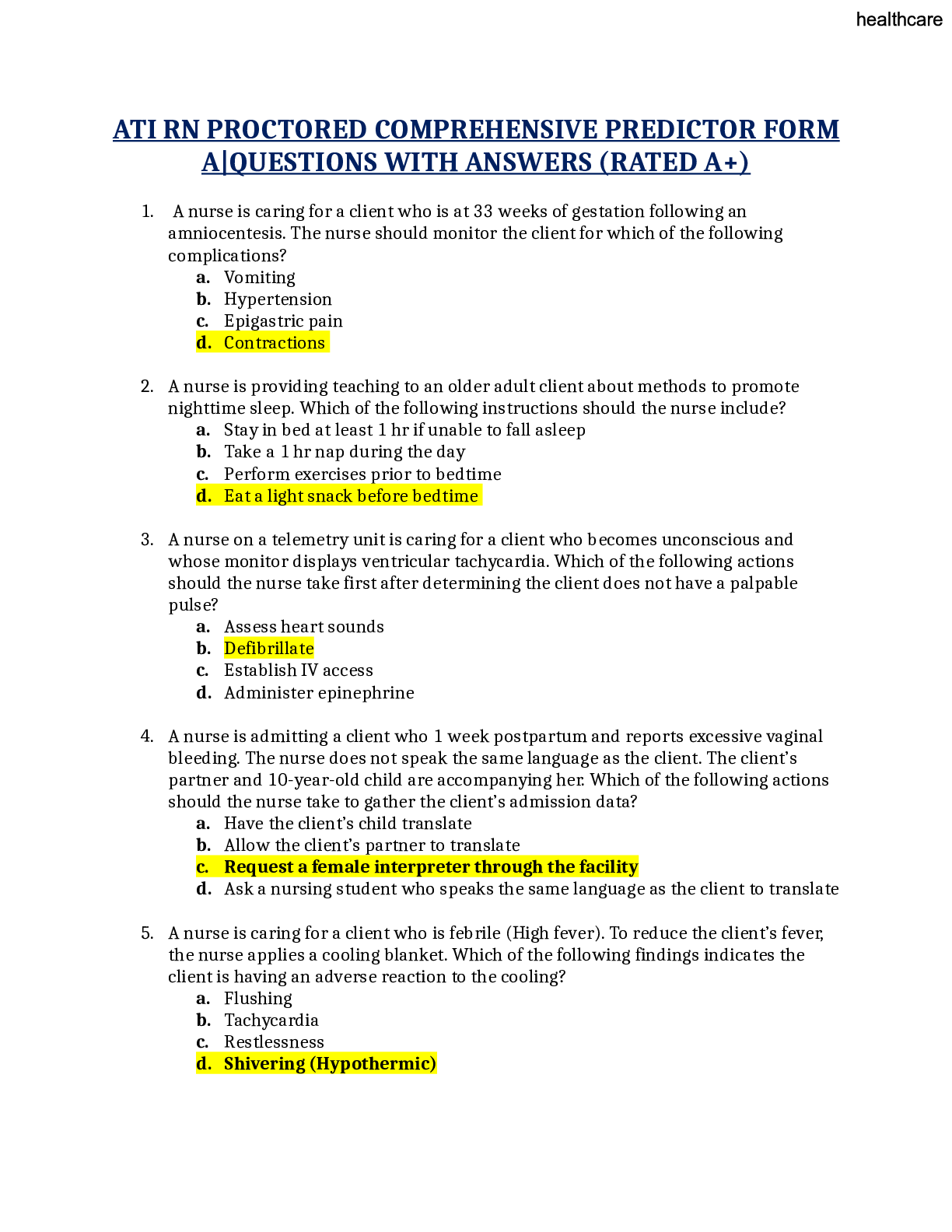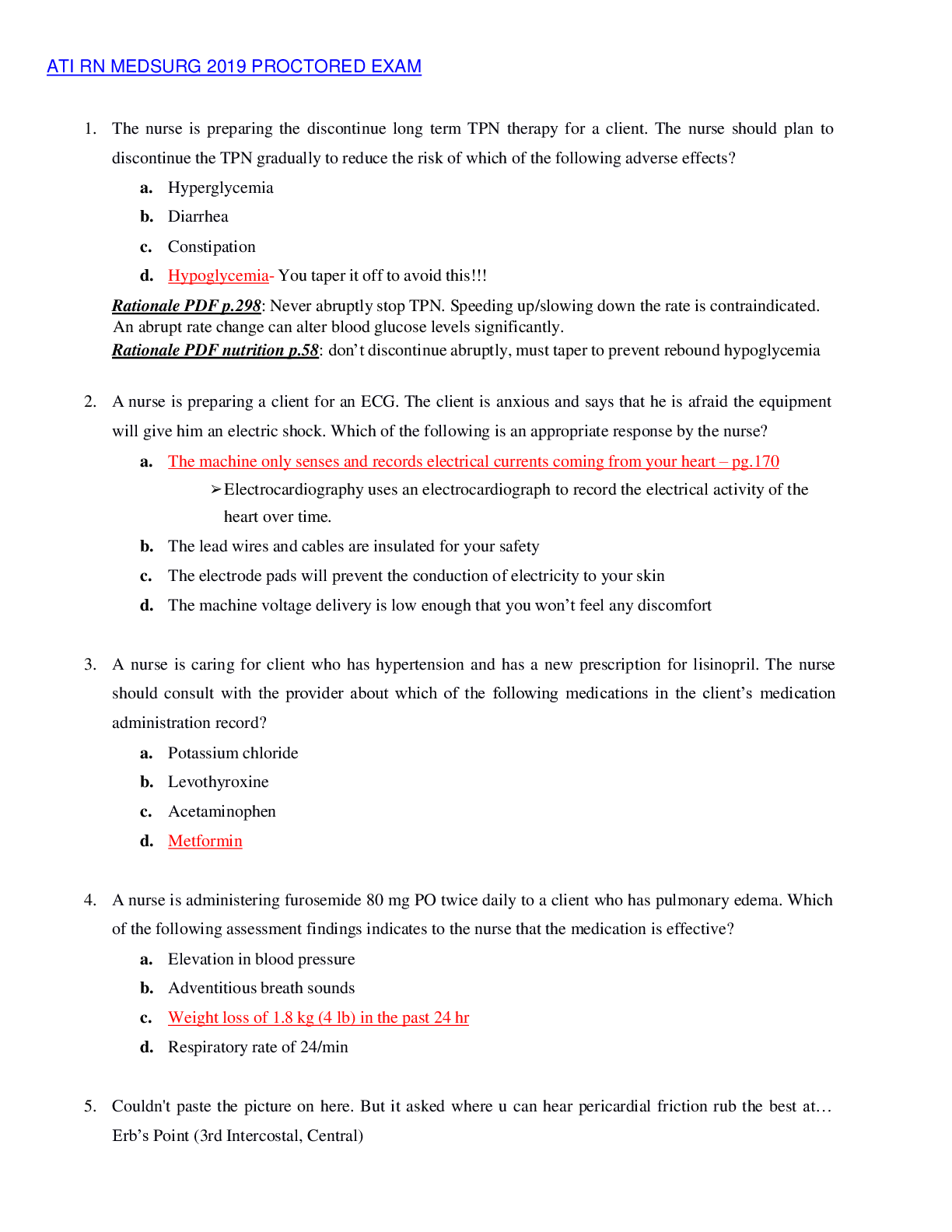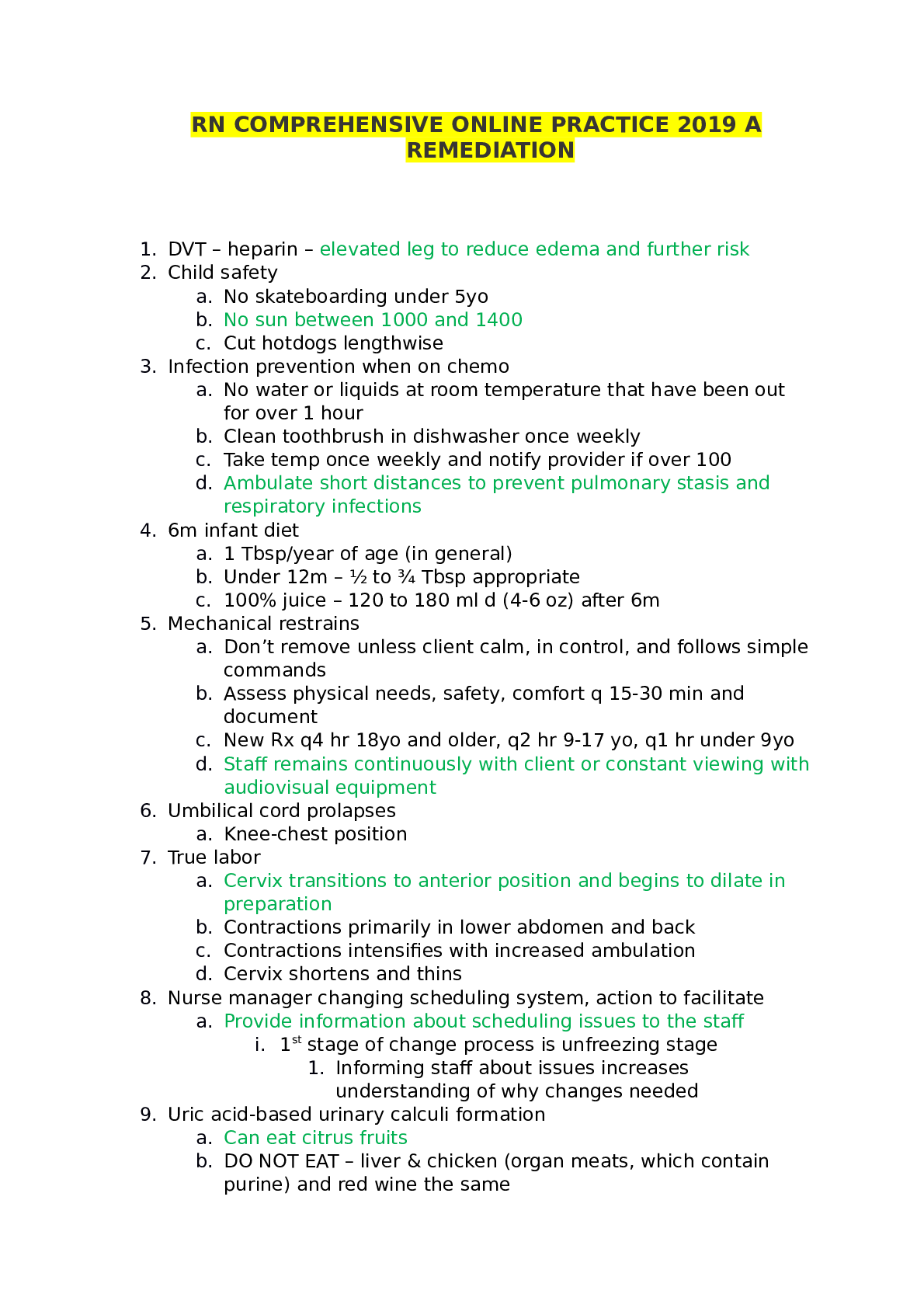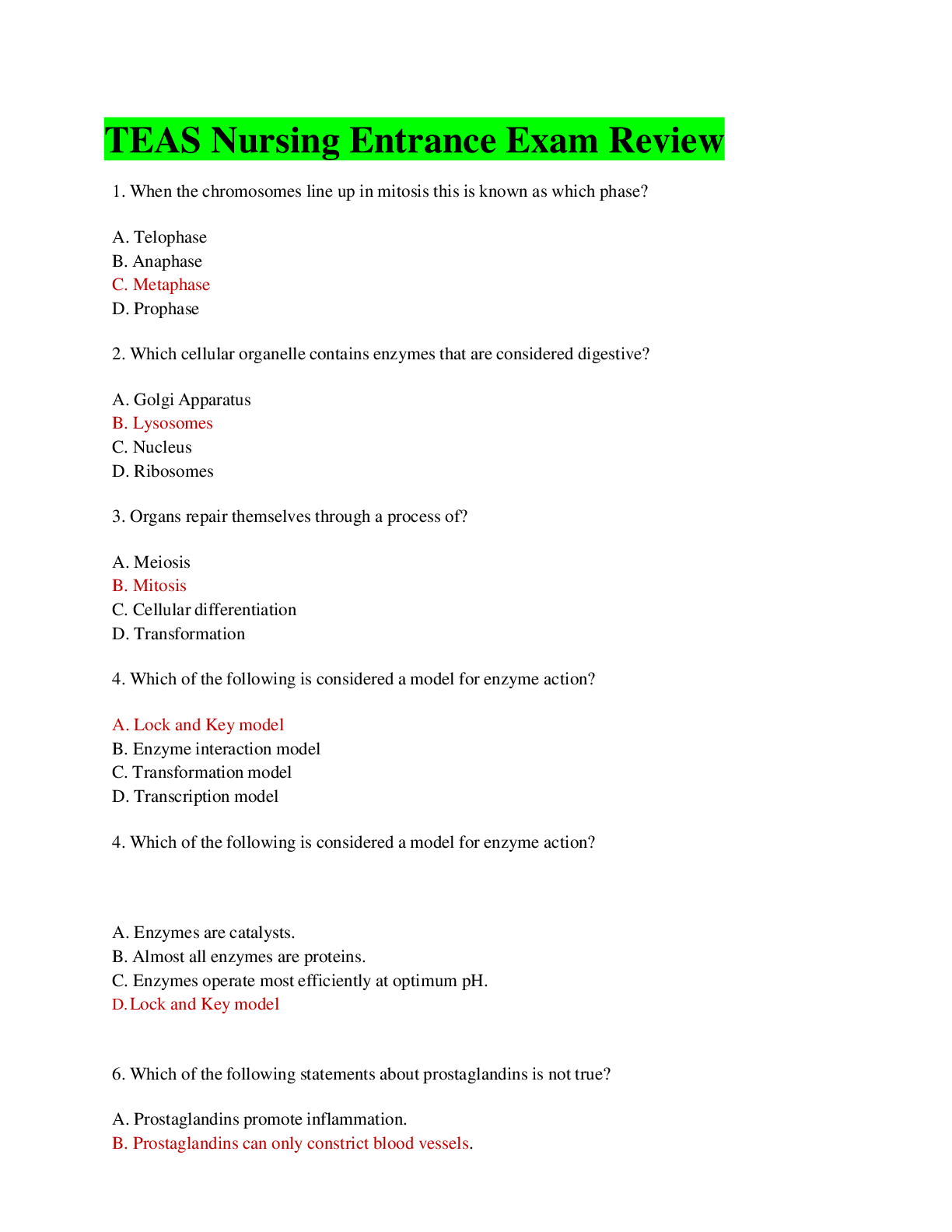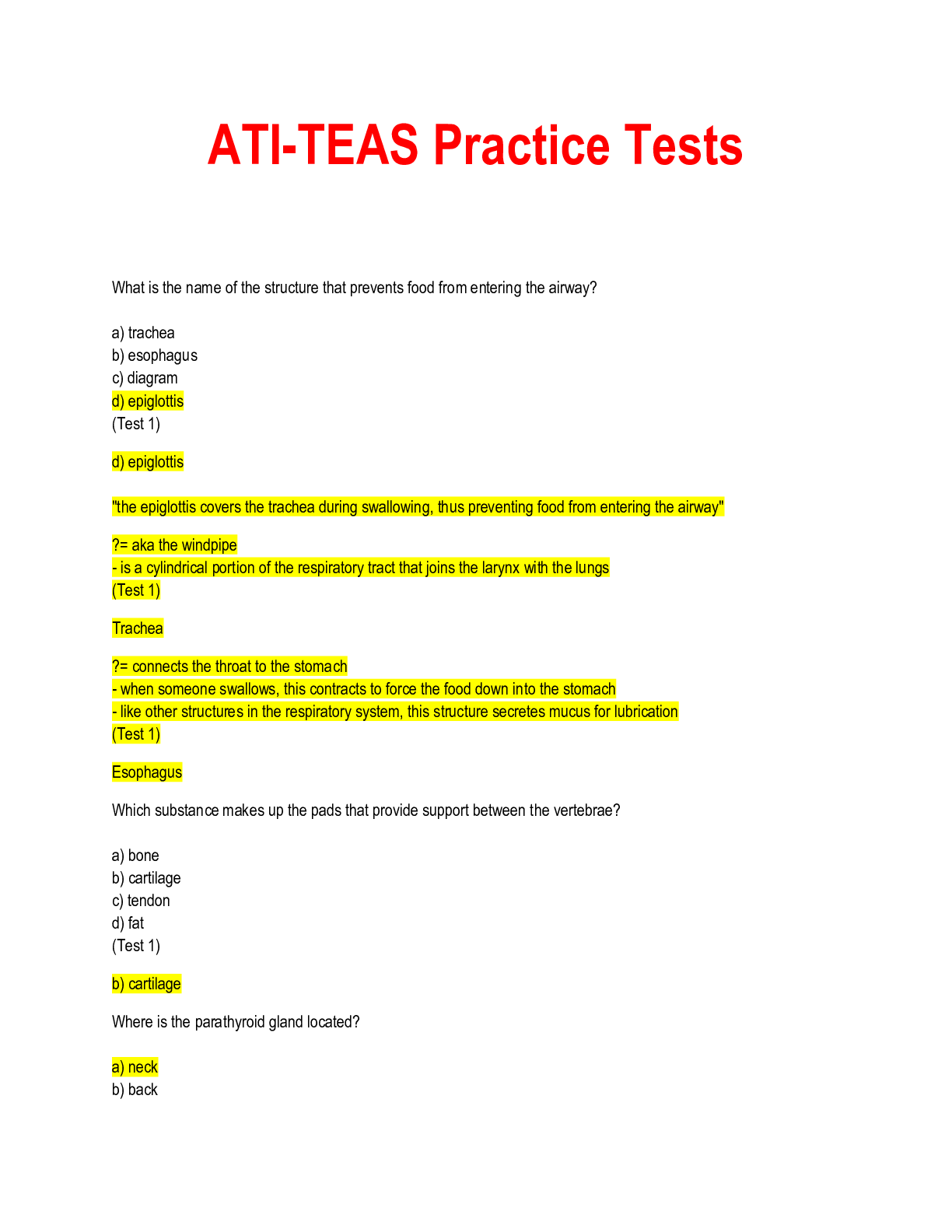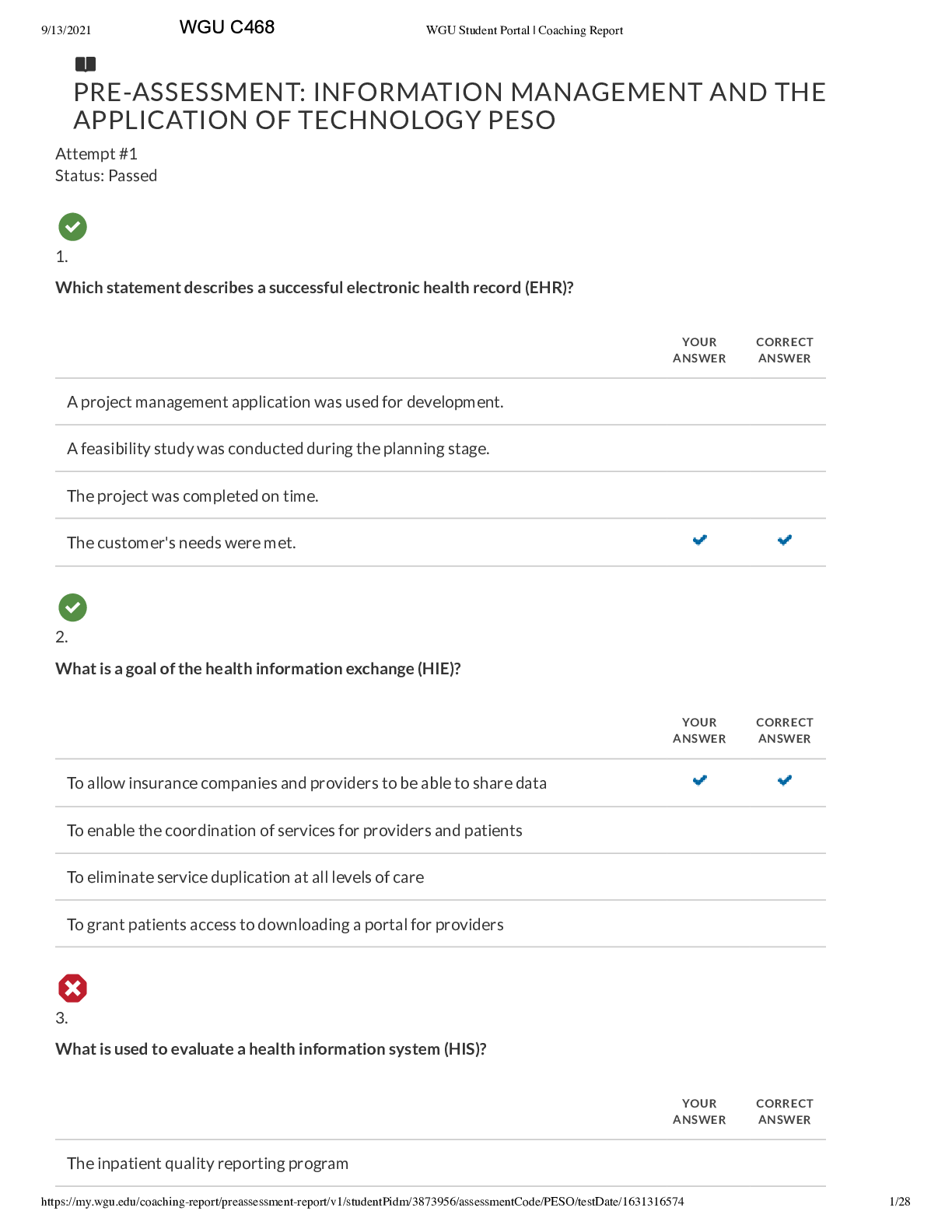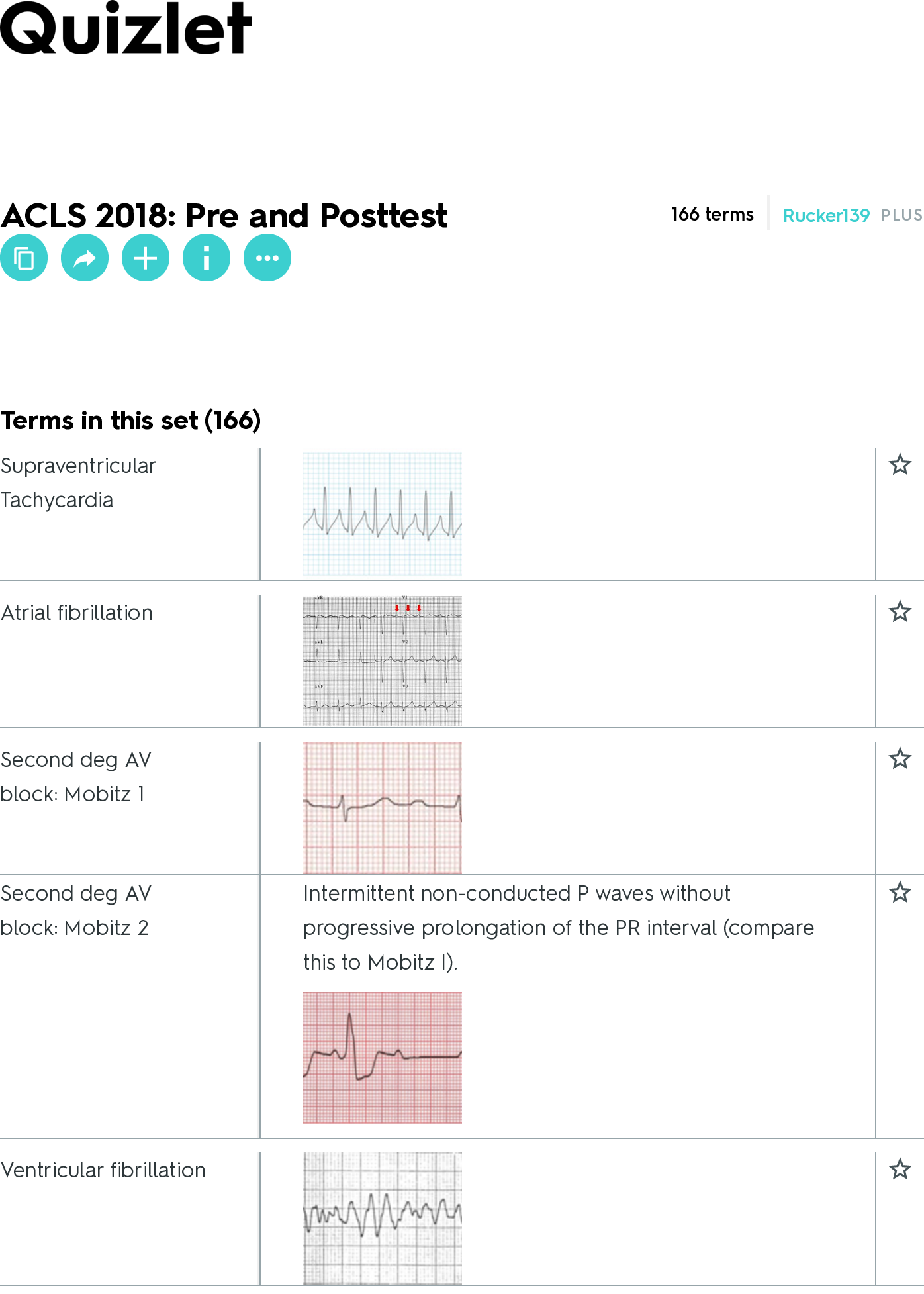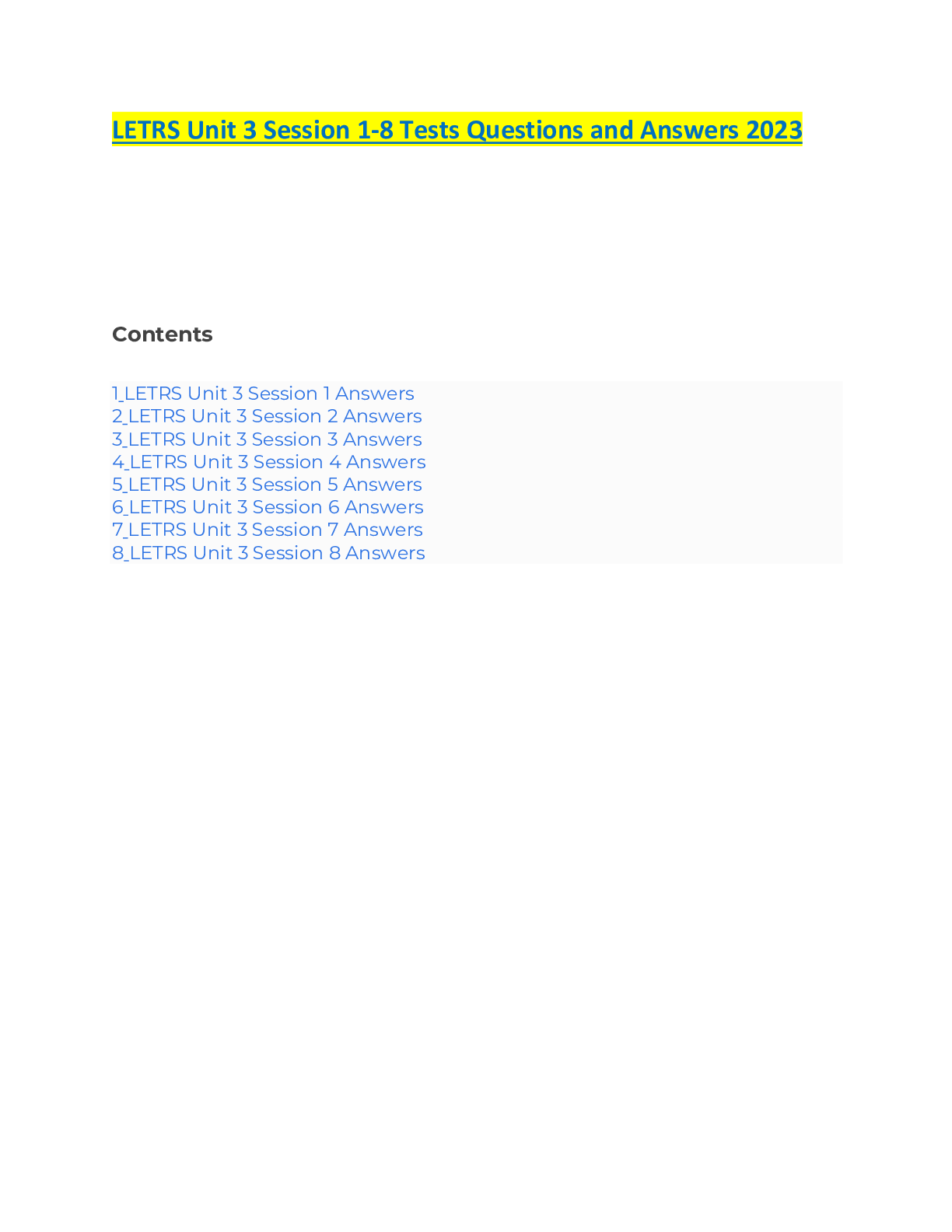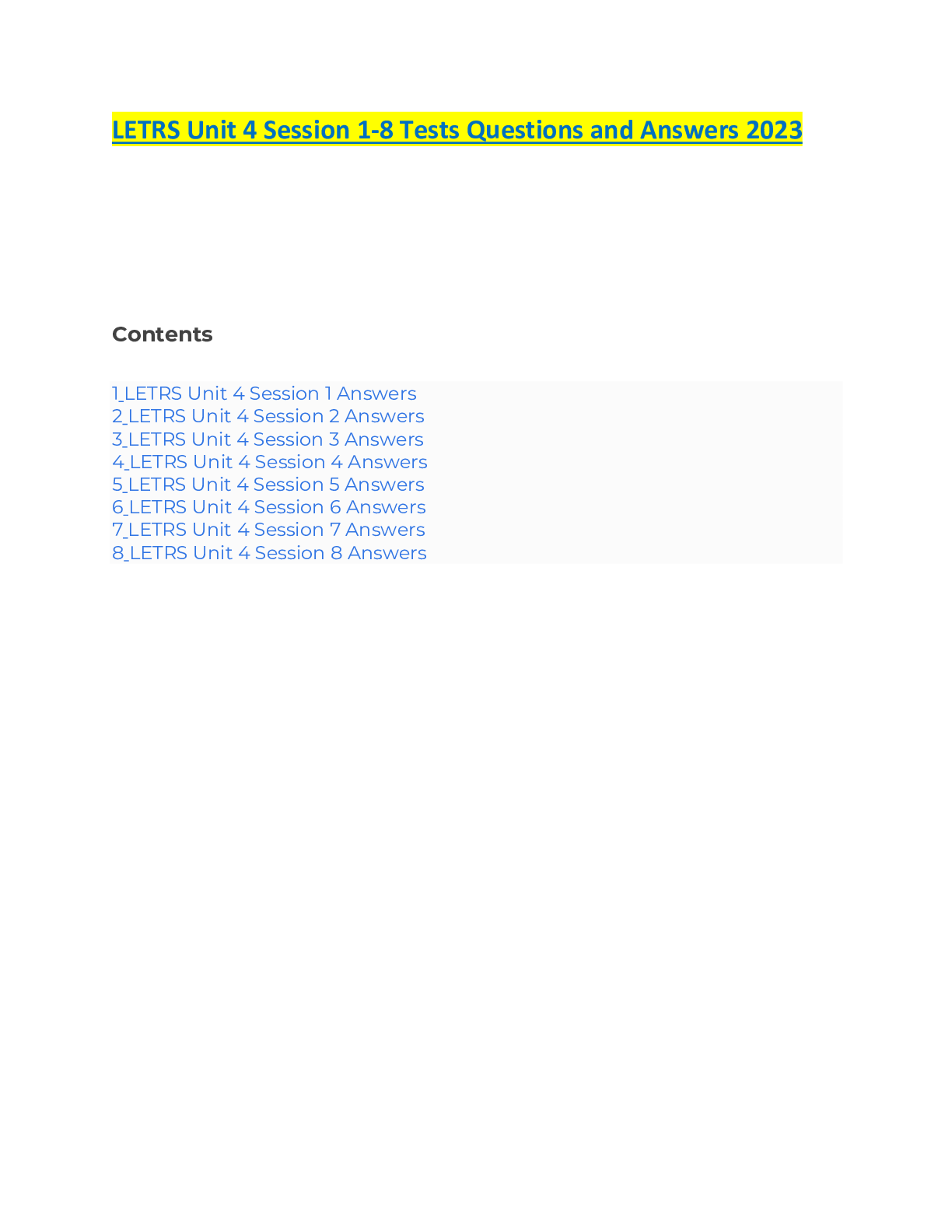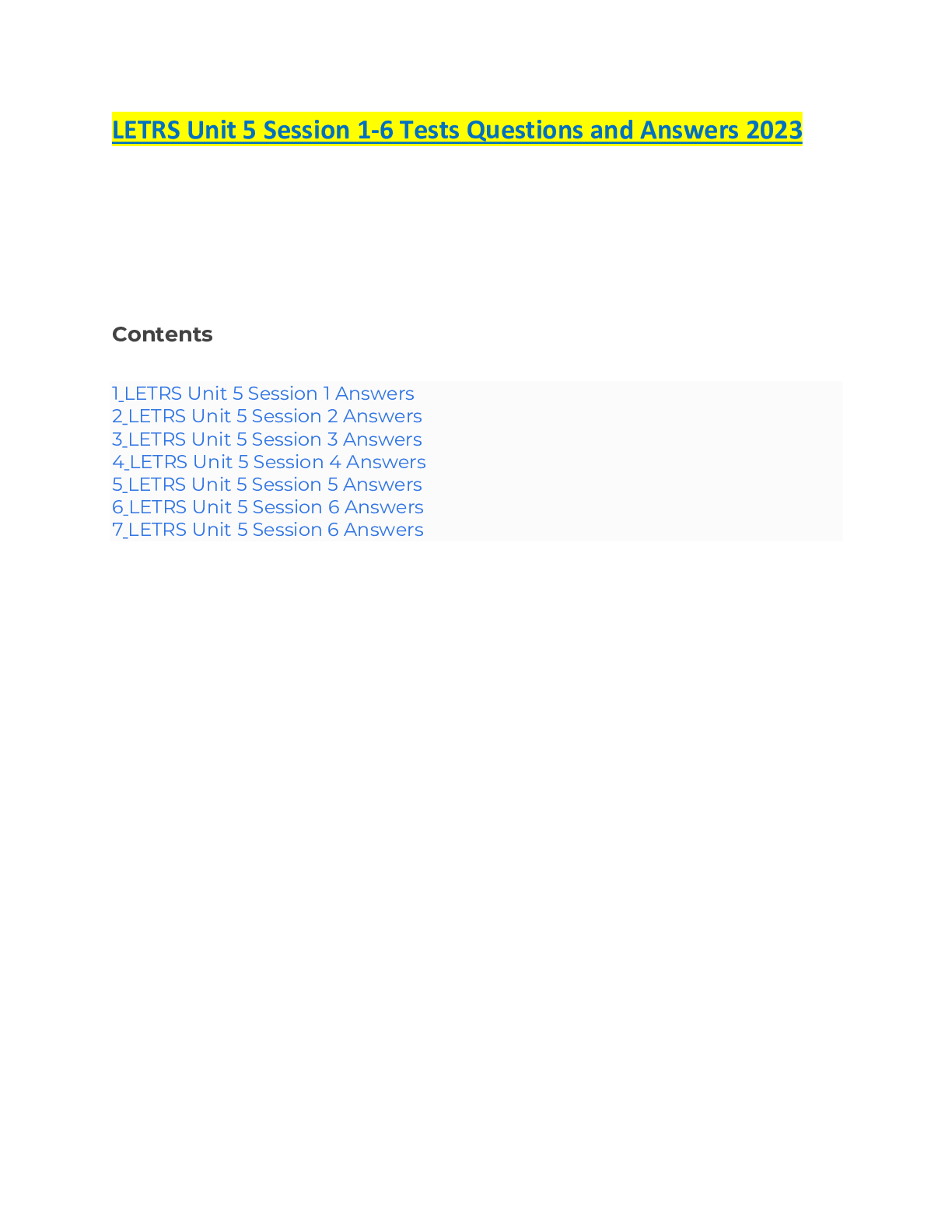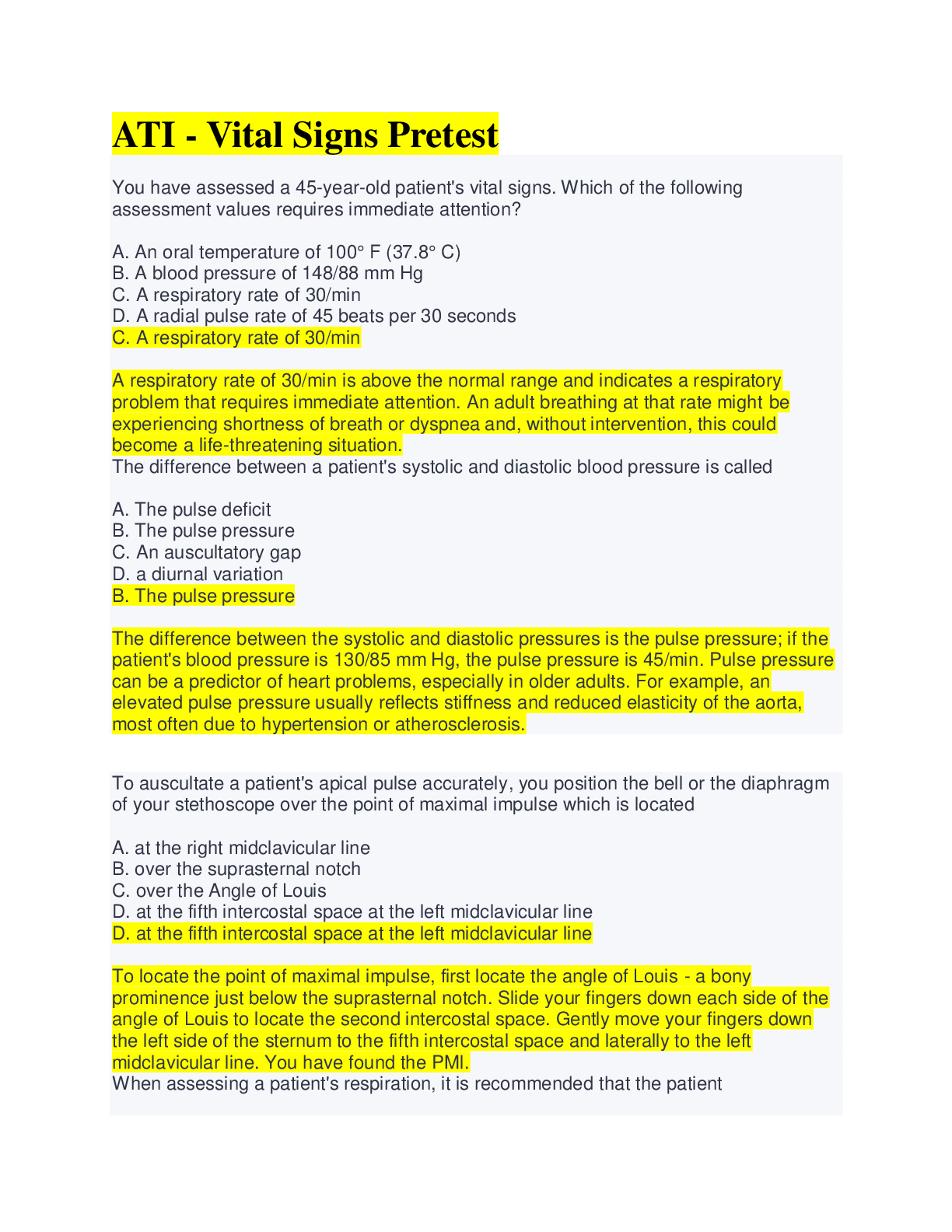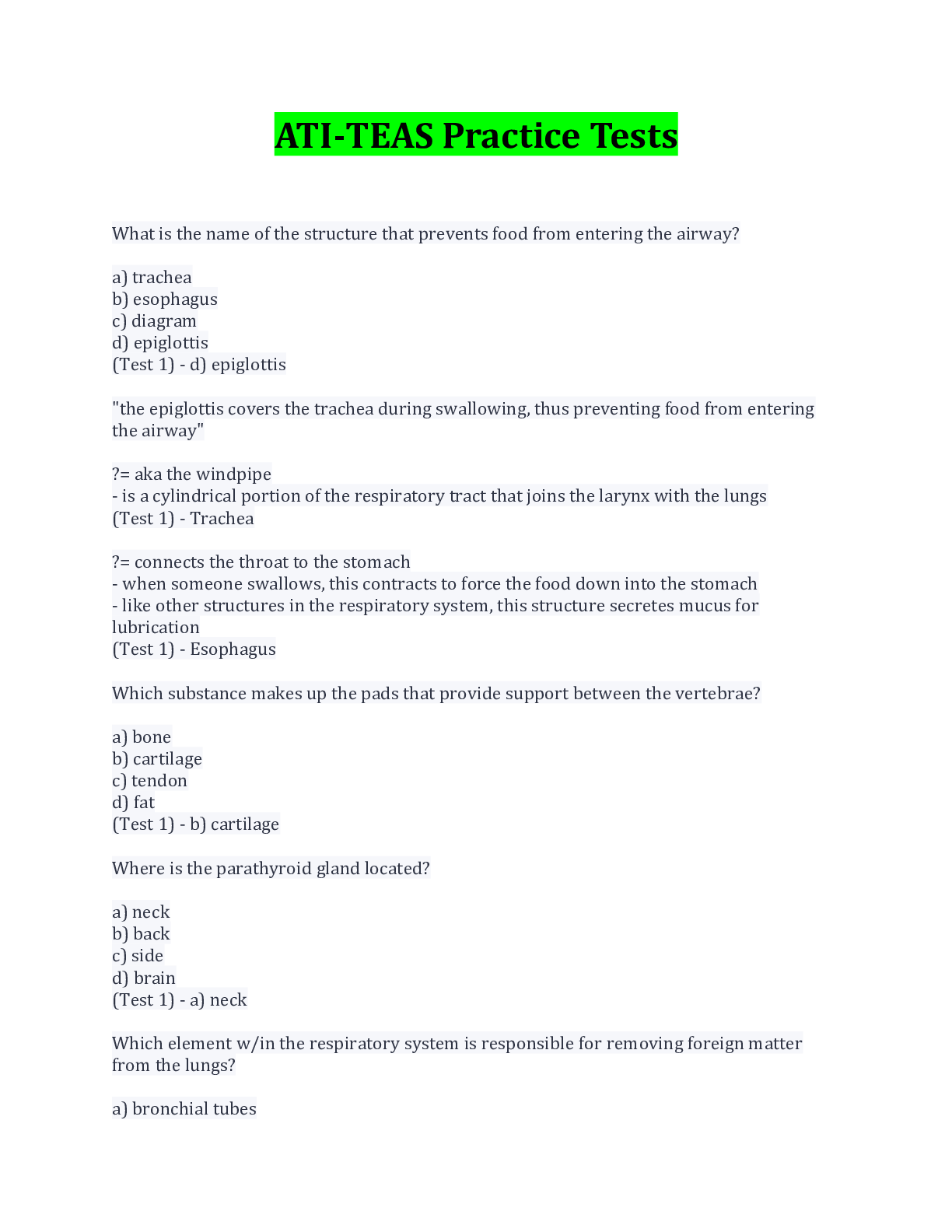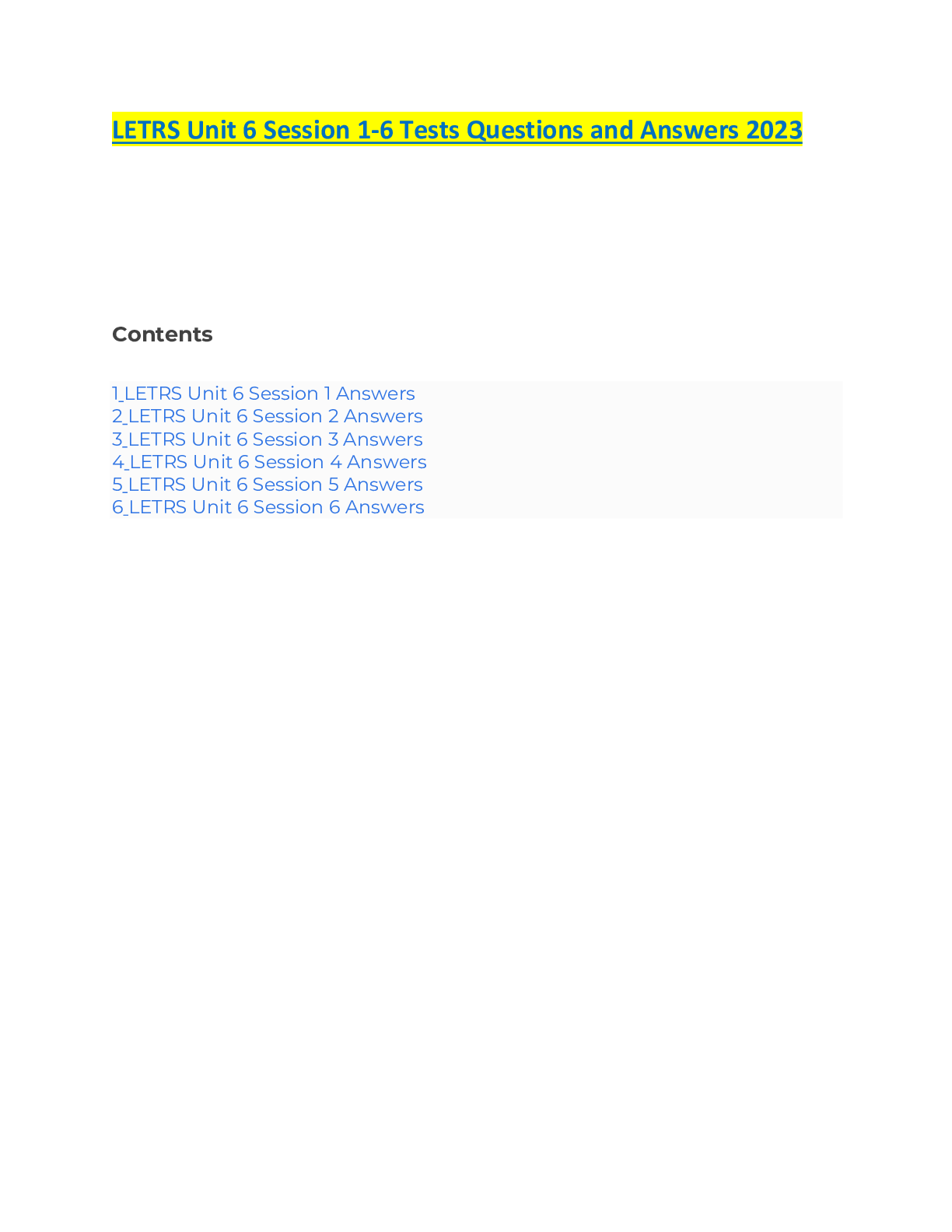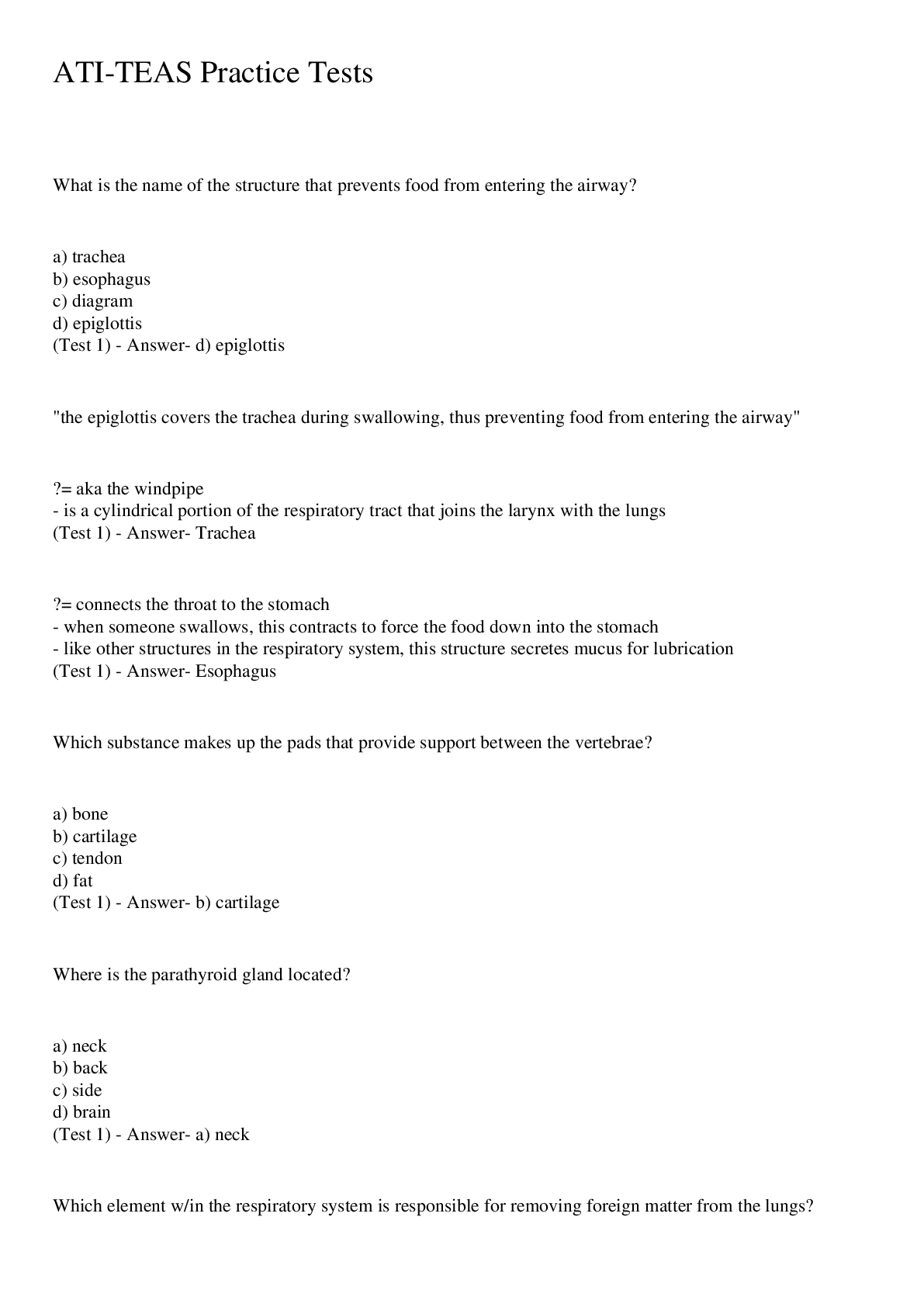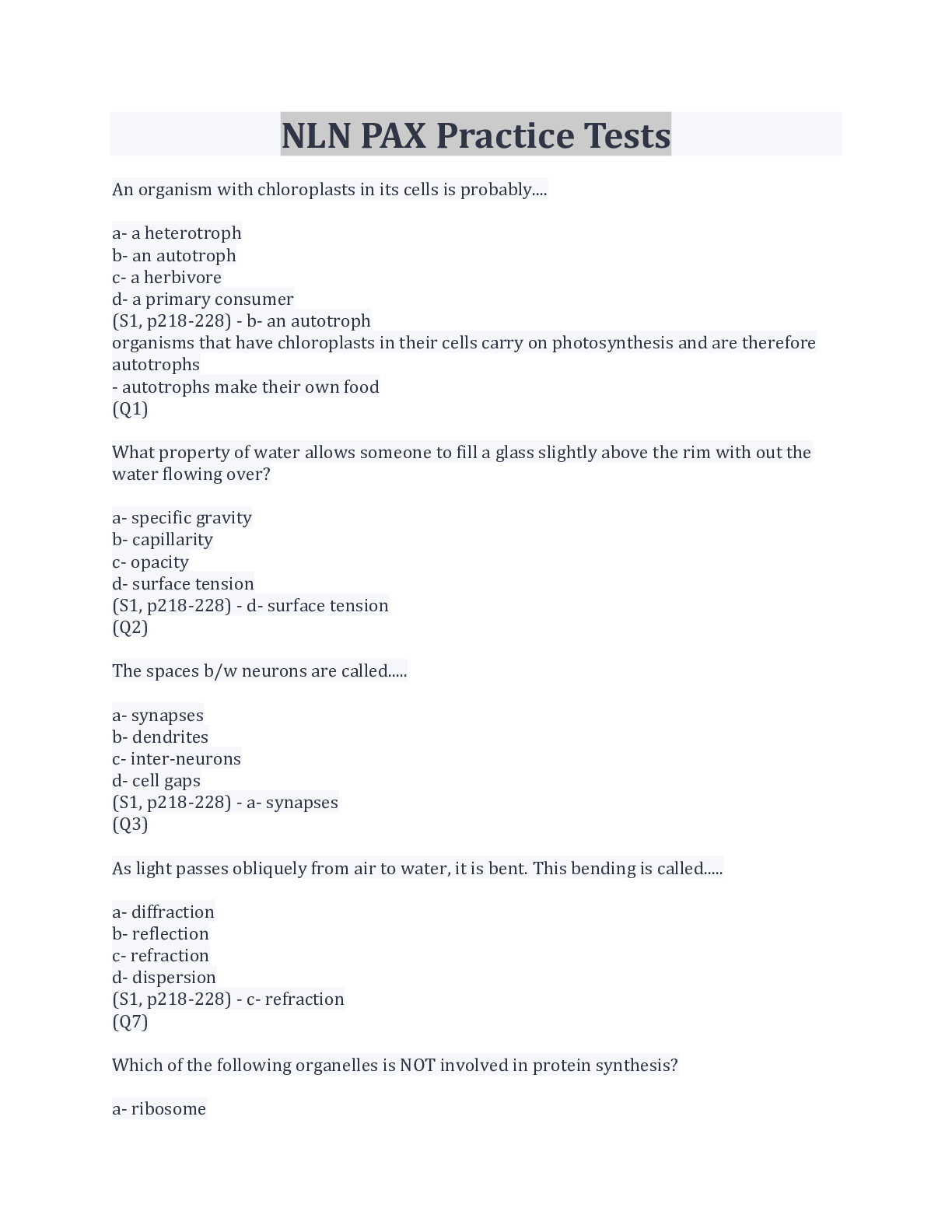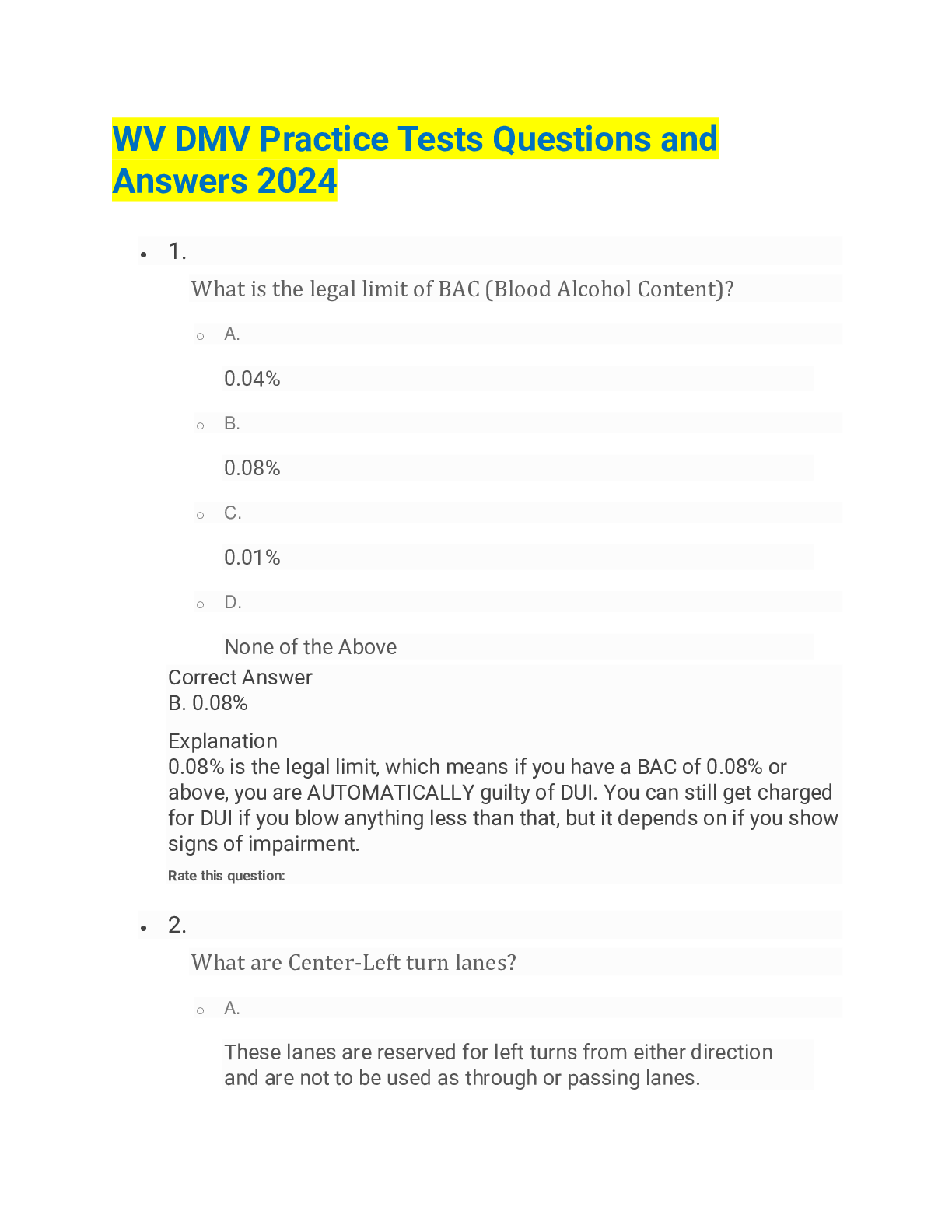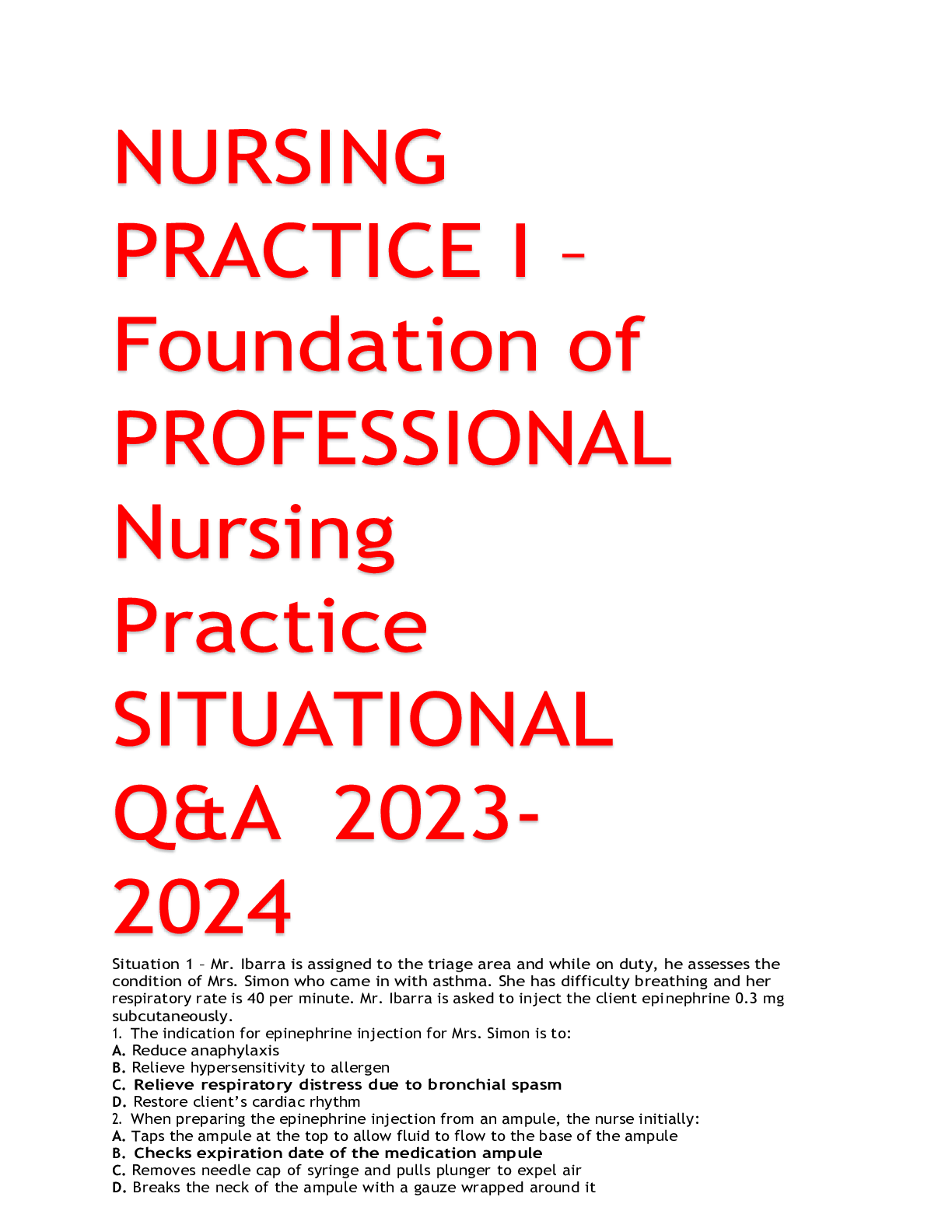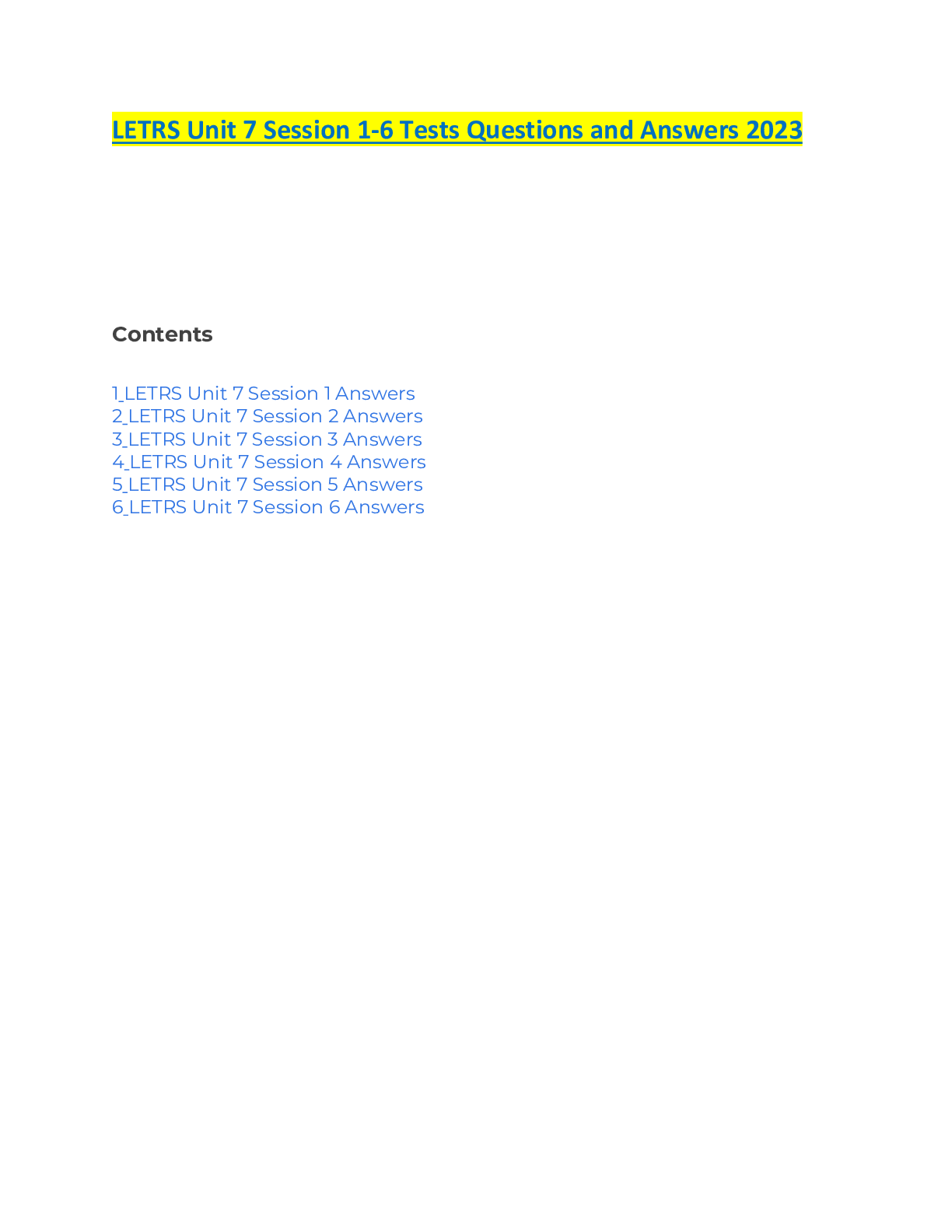Health Care > EXAM > EDUC 240 PRE AND POST TESTS QUESTIONS AND ANSWERS (All)
EDUC 240 PRE AND POST TESTS QUESTIONS AND ANSWERS
Document Content and Description Below
EDUC 240 PRE AND POST TESTS QUESTIONS AND ANSWERS PRE TEST 1. Conditioning theory suggests that trainees should be encouraged and reinforced throughout the training process. ANSWER: True 2. ... According to Robert Gagné, learning outcomes associated with training can be classified into six general categories: verbal information, intellectual skills, cognitive strategies, motor skills, attitudes, and emotional intelligence. ANSWER: False 3. Need theories have important implications for training and development because employees’ needs must be considered in the design of a training program ANSWER: True 4. Procedural knowledge is related to learning knowledge, facts, and information. ANSWER: False 5. Social cognitive theory involves three key components: observation, self-efficacy and feedback. ANSWER: False 6. Self-efficacy is positively related to training motivation. ANSWER: True 7. Training motivation is a strong predictor of learning and training outcomes. ANSWER: True 8. Learning is the process of acquiring knowledge and skills, and a change in individual behaviour as a result of some experience. ANSWER: True 9. Extrinsic motivation is the motivation that stems from a direct relationship between a worker and the task. ANSWER: False 10. The training effectiveness model shows how training and personal factors influence learning and knowledge. ANSWER: False POST TEST 1. In the Model of Training Effectiveness, what part of the model flows into Individual Behaviour and Performance? ANSWER: Learning and Retention 2. What is the concept that refers to the type of motivation that stems from a direct relationship between a worker and the task? ANSWER: Intrinsic motivation 3. What type of goal is process-oriented and focuses on the learning process? ANSWER: Mastery goals 4. hat is the concept that refers to the adult-oriented approach to learning that takes into account the differences between adult and child learners? ANSWER: Andragogy 5. What type of motivation focuses on the direction, intensity, and persistence of learning-directed behaviour in training contexts? ANSWER: Training motivation 6. What is the concept that refers to the process of acquiring knowledge and skills, and a change in individual behaviour as a result of some experience? ANSWER: Learning 7. Using Alderfer’s theory, what is the need that is si [Show More]
Last updated: 1 year ago
Preview 1 out of 3 pages
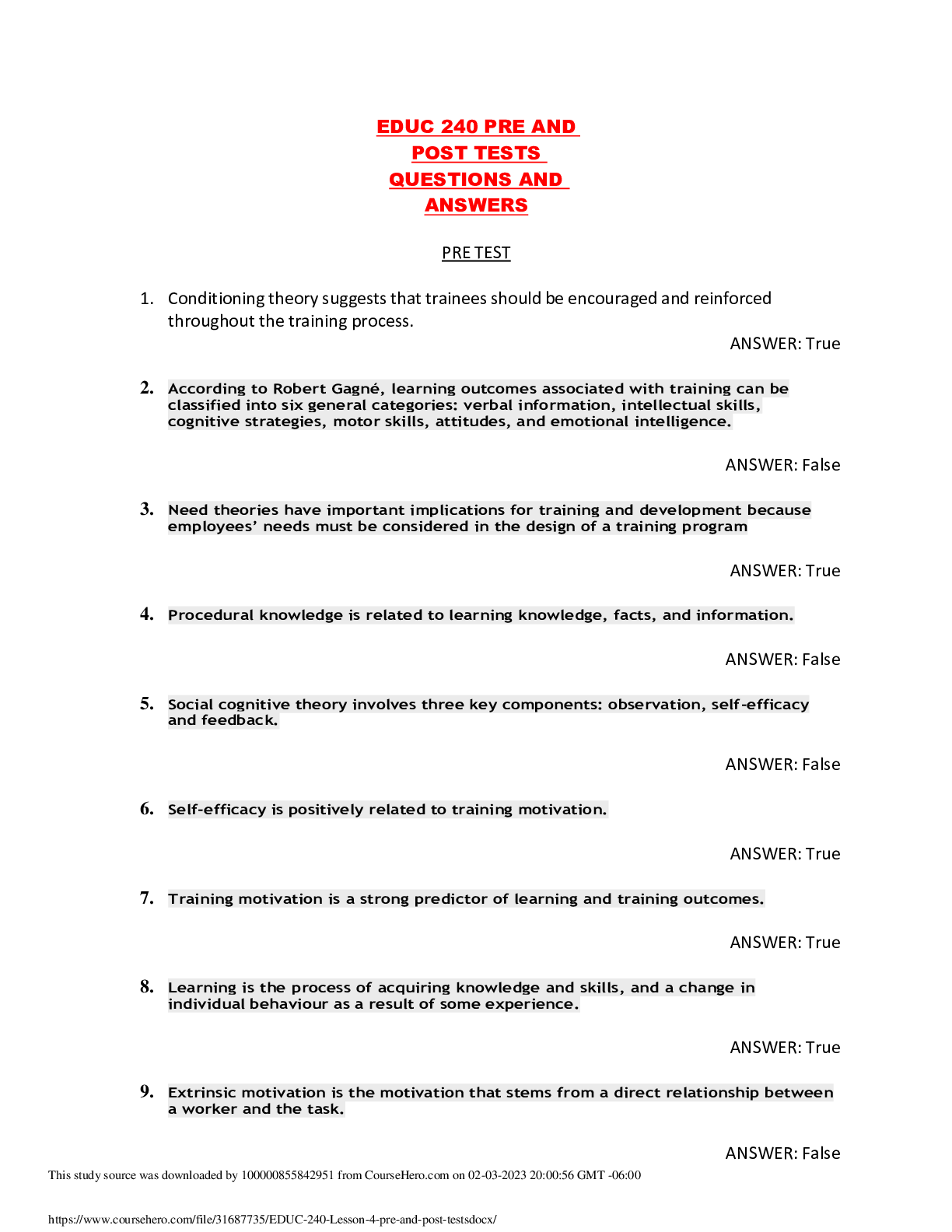
Reviews( 0 )
Document information
Connected school, study & course
About the document
Uploaded On
Feb 04, 2023
Number of pages
3
Written in
Additional information
This document has been written for:
Uploaded
Feb 04, 2023
Downloads
0
Views
60

